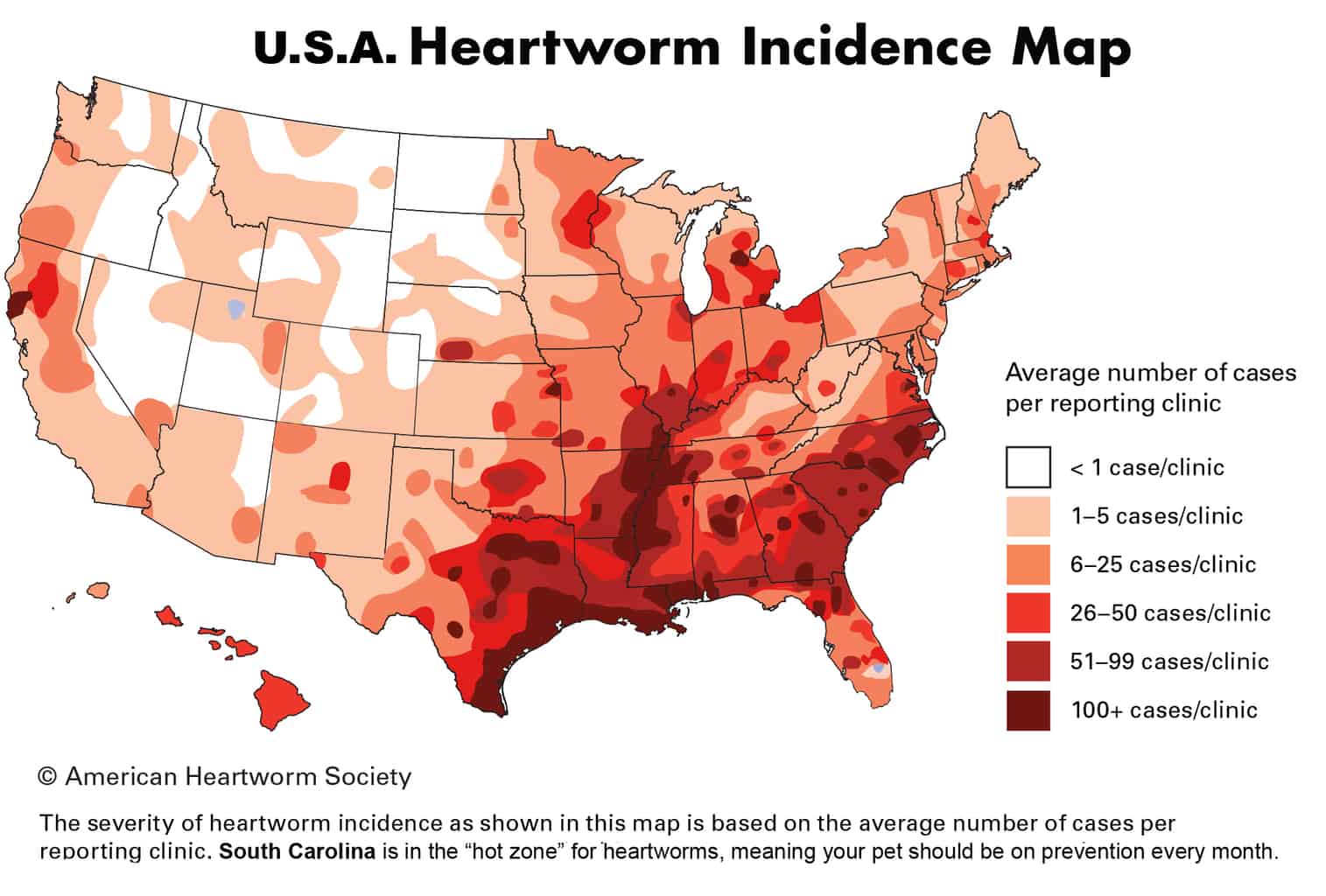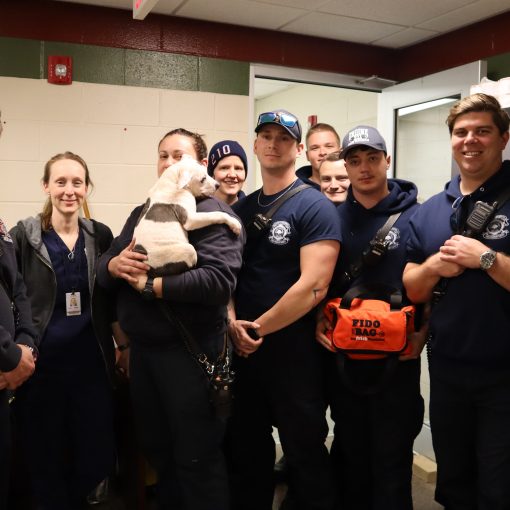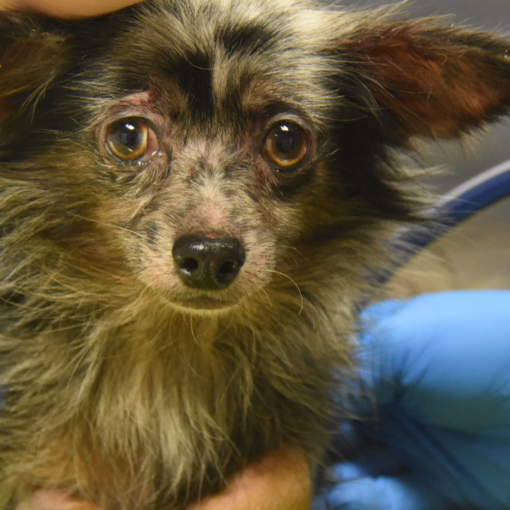By Dan Krosse
Anyone who’s seen photos of heartworms knows how disgusting they are. Long, spaghetti strings of evil that wind themselves into your dog or cat’s heart and then inflame the lungs – leading to a slow, painful death.
“Every dog and cat in South Carolina needs to be on a preventative, every month, all year round,” says Charleston Animal Society Senior Director of Veterinary Care Dr. Lucy Fuller. “Even cats. And yes, even if your pet is always indoors. Who hasn’t seen a mosquito flying around their house?”
Just one Bite
That’s the difficulty with heartworms, all it takes is one bite from a mosquito that is carrying heartworm larvae. Preventatives like Heartgard or Trifexis will run the owner of a 40-pound dog between $70 and $200 a year. If that sounds expensive, consider the cost of treating heartworm: anywhere from $1200 – $2000 at your local vet office, according to the American Heartworm Society.
Be sure to encourage your neighbors to get their pets on heartworm prevention, because if they are not – that means your pet is at higher risk of infection. That’s because a mosquito needs to bite into an infected dog, to then pass the heartworms on to a new victim. And experts say the typical mosquito only covers a zone of about 300 square feet in its lifetime.
Will Spraying for Mosquitos Help?
Getting rid of mosquitos safely is always a great option to prevent heartworms. “I think spraying is a good idea, if the application is safe for animals and people,” Fuller said.
Mike Hillman with Mosquito Hound says his application is people and pet friendly. Their company sprays yards, especially the undersides of bushes and plants that mosquitos love. “We suggest a mosquito treatment every 21 days. We can also treat your yard for fleas and ticks,” Hillman said.
Mosquito Hound is committed to fighting heartworms in the Lowcountry and will give $100 to Charleston Animal Society, for every season package purchased at Mosquito Hound. Go to www.mosquitohound.com for details.





